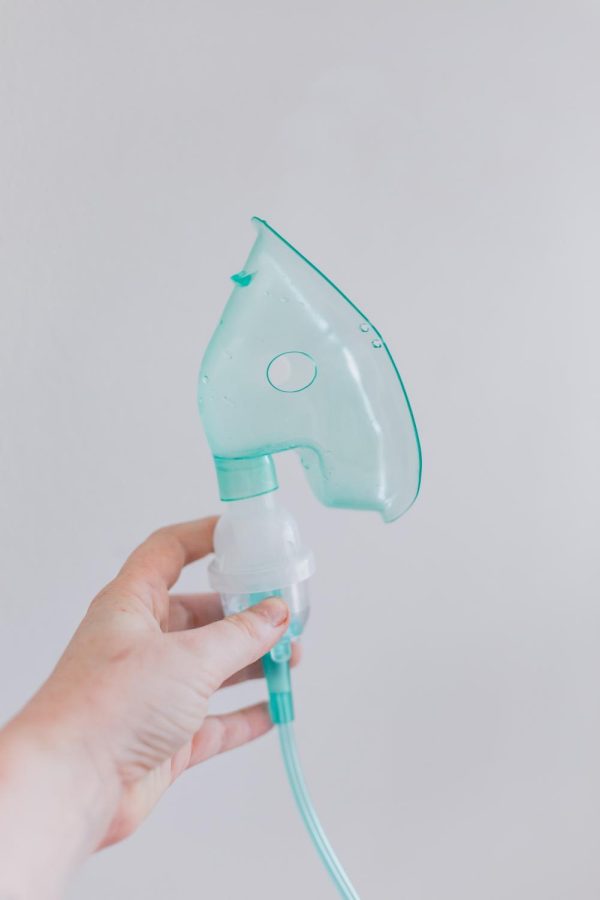Ordinary activities take extraordinary effort
Photo by and used with the permission of Sincerely Media
For some people, breathing can be something that is not taken for granted. “It’s really hard to explain to people who don’t understand what it’s like to not be able to breathe. It’s so different from just getting tired. It feels like you really can’t get the oxygen all the way. It’s kind of scary actually,” Mia McHugh, a freshman diagnosed with asthma, said.
Breathe in. Breathe out. Breathing is a subconscious activity that is essential for living. However, breathing can be difficult for more people than most realize.
May is Asthma Awareness Month. One in 13 Americans has asthma, according to the Asthma and Allergy Foundation of America. Within LZHS, there are 132 known students with asthma, according to Heather Kinsey, RN and BSN, who works as a school nurse. One of those individuals is Mia McHugh, freshman.
“When you’re breathing [normally] it almost feels like you have a tank and it’s filling up, and then you’re letting it out again. [Asthma] feels like that tank of air is cut in half,” McHugh said. “If you breathe all the way in, the air is going all the way to the top of your chest, but it only goes to the middle of your stomach when you’re having an asthma attack. Your breaths are so short and you just can’t get the air all the way up.”
McHugh says she has struggled with breathing ever since she was little. At the age of three, her parents noticed something was wrong when McHugh was around animals. When she got tested, McHugh was diagnosed with allergic asthma, a type of asthma that reacts from contact with an allergen.
“I was too young to really understand what they meant when they said I had [asthma]. It was a struggle being young and always wanting to run around and play,” McHugh said. “It’s really hard when you can’t breathe and you’re too young to really understand what’s wrong with you.”
It seemed like other people didn’t seem to understand asthma either, according to McHugh.
“A lot of people might feel embarrassed to have asthma and taking your inhaler in front of other people can be really awkward,” McHugh said. “I think a lot of people just need to understand more about [asthma] because they don’t know what it’s like to be in that situation where you can’t breathe.”
McHugh’s persistent challenges caused her to struggle in her passion: gymnastics.
“One of the hardest parts [about asthma] is my sport and not wanting to put myself at higher risk of making my asthma worse, but I also don’t want it to affect my gymnastics skills,” McHugh said. “I don’t want to irritate my lungs or tire myself out and cause myself to use my inhaler, but sometimes it just feels like I need to [take my inhaler] in order to succeed.”
Similar to McHugh, Madelyn Roscoe, freshman, had struggles with asthma and her sport, Track and Field.
“With running, if I get out of breath, it’s a little bit worse than other people because I have restricted access to air. [Running] takes a bigger toll on my breathing than it does for other people,” Roscoe said.
Roscoe was diagnosed with allergic asthma with allergies to grass, trees, pollen, cats, dogs, dust, weeds, and several other environmental factors at the age of seven. Ever since then, Roscoe said that she has had a constant thought on her mind.
“The worst thing is the worry [that follows] because of my restricted air pipe,” Roscoe said. “It scares me because I wonder, ‘How much can I run before I pass out or I can’t breathe anymore?’”
To help prevent this fear, Roscoe uses a prescribed medication.
“I self-carry a rescue inhaler around with me,” Roscoe said. “If I start to get an asthma attack and I can’t breathe, I would take two puffs of [my inhaler], and in about like a minute or so, my breathing would go back to normal.”
To better support individuals with asthma, Roscoe recommends “watching out” to make sure he or she is safe, especially when exercising.
“If you know somebody with asthma, just know if you’re both working out together, or running or anything else, it’s going to sometimes [have] a bigger impact on them and on their breathing than it will for you, so watch out for them,” Roscoe said.
Even though asthma makes breathing difficult, McHugh does not let it stop her from living her daily life.
“A lot of times when I can’t breathe, I think [that] when it’s all over I’ll feel so much better. Sometimes it’s really hard to fight it back because you just can’t get oxygen. There’s not much you can do about it,” McHugh said, “but I just don’t let it stop me. Even though it really feels like it is stopping me, I just keep fighting.”

Returning for her third year on staff, Jeanne is excited for her second year as the Digital Editor-in-Chief of Bear Facts. In addition to journalism, Jeanne...


